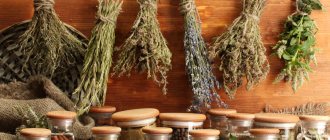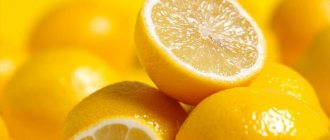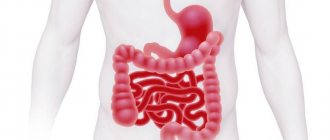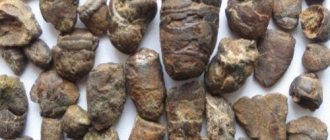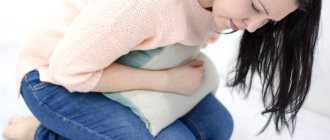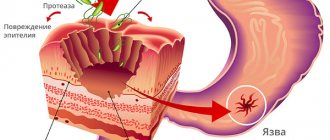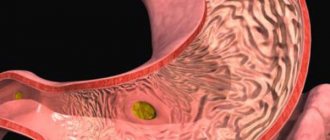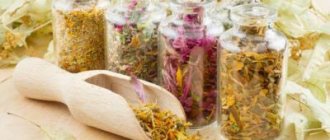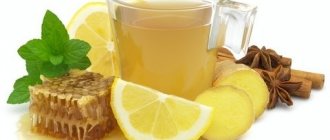Intestinal diseases for which treatment with folk remedies is allowed
Painful sensations in the intestines in the vast majority of cases are associated with poor nutrition.
However, before resorting to self-medication, you need to consult with a qualified specialist, who should conduct a thorough examination of the digestive organs to determine the exact cause of the pain.
Not all intestinal diseases can be cured with the help of traditional medicine, but many problems can be successfully eliminated with folk remedies, for example:
- Intestinal infections.
- Bloating.
- Dysbacteriosis.
- Helminths.
- Colitis (inflammatory processes of the colon mucosa).
- Enteritis (inflammation of the small intestine).
- Diarrhea.
- Constipation. You can read how to do an enema for constipation at home here.
- Duodenal ulcer.
Before starting to treat any of the listed diseases with folk remedies, you need to consult a doctor, since each case is individual. And the first rule of medicine, including folk medicine, is to do no harm.
Reviews from experts
Most doctors draw the attention of patients to the fact that it is almost impossible to cure IBS only with the help of folk remedies.
The use of traditional methods of therapy as the basis for treating the syndrome may not only be ineffective, but also dangerous to health. By relieving symptoms with the help of medicinal herbs, possible diseases do not fully manifest themselves for a long time. Behind the mask of this pathology, diseases such as intestinal infection, ulcerative colitis, or even a malignant process can be hidden.
Therefore, it is so important, when the first signs of gastrointestinal pathology appear, to consult a specialist for timely diagnosis and comprehensive (use of not only folk remedies, but also effective medications) therapy.
Irritable bowel syndrome
The term IBS or “irritable bowel syndrome” has come into use relatively recently. According to statistics, 40% of the world's population suffers from this disease. It does not apply to acute conditions, and therefore many do not even seek medical help.
However, irritable bowel syndrome greatly affects the quality of life, causing the patient constant discomfort.
Symptoms of IBS include:
- stabbing, pulling, aching or cutting pain;
- abdominal discomfort;
- bloating;
- subjective feeling of fullness in the stomach; If you have stomach pain, you can find out how to relieve the pain here.
- fast saturation;
- lump in the throat;
- difficulty swallowing;
- nausea;
- pain in the left side and more.
It is easy to notice that the signs of irritable bowel disease are rather vague and, as a rule, do not have a very pronounced intensity, which makes it difficult to make a diagnosis.
IBS can cause both diarrhea and constipation. Often there are no problems with stool at all.
Despite the wide range of symptoms, irritable bowel syndrome responds well to folk remedies, which is an even better solution than drug intervention in the body.
Use of herbs and teas
Irritable bowel: treatment with folk remedies. A very effective remedy is medicinal herbs, from which teas are brewed and infusions are made.
Folk recipes for herbs and teas:
- Chamomile. In a short time it relieves inflammation, relaxes, and has antibacterial properties. A tablespoon of chamomile flowers is brewed in a glass with boiling water, and then allowed to brew for 10-20 minutes. The decoction is taken 2 times a day, 1 glass. You can use bagged chamomile tea.
- Mint. It has a sedative effect, calms, significantly reduces gas formation, and relieves spasms. Brew 1 tablespoon of dried mint or chopped fresh mint in a cup and let it brew for half an hour. This decoction should not contain sugar. To improve the taste, you can add stevia, a natural sweetener.
- Thyme. Cleanses the digestive tract of toxins, significantly improves digestion, relieves inflammation and pain. It is recommended to take thyme infusion 2-3 times a day, after cooling it to room temperature.
- Sage. An excellent home remedy for diarrhea, vomiting and nausea, which often accompany irritable bowel syndrome. Sage has a pronounced wound-healing effect, also has strengthening properties and is effective for diarrhea. 10 grams of dry sage are brewed with three glasses of boiling water. The decoction is infused and taken a glass 3 times a day.
Herbs and herbs to combat illness
herbal preparations will help overcome irritable bowel syndrome :
- A collection of buckthorn and chamomile is a proven composition against a range of gastric lesions and ailments. Flowers and leaves are used for preparation; there are no strict proportional dosages. The decoction is taken in the morning and evening before meals.
- The collection of chamomile and valerian is prepared similarly to the previous compositions, only the ingredients change. It is necessary to take the components in equal content. These are chamomile flowers, valerian root, mint leaves, fennel fruits. The composition is taken instead of ordinary tea. And if you can replace coffee with it, you will achieve not only the treatment of this disease, but also the improvement of the whole body.
- Collection of calendula and linden . To use this composition, it is necessary to take raw materials in equal proportions. You can also add cornflower flowers, birch leaves, and sage to the medicine. After mixing, the composition is filled with water. Then the substance is placed in a water bath and kept for 15 minutes. It should be taken in the morning and evening before meals.
- Another effective remedy is a collection of wormwood and dill . The composition of this substance is quite simple. The raw materials are taken equally, yarrow and calamus in the form of a root are added to it. After mixing the raw materials, the whole thing is filled with water. The composition is taken in the same way as the previous decoction.
If irritable bowel syndrome is diagnosed, treatment with folk remedies should be effective and thorough.
Folk remedies
For constipation
Folk remedies for constipation:
- Castor oil. One of the most common treatments for constipation. Even in small quantities, it can start the digestive system and normalize intestinal motility. An adult should drink 20 grams of castor oil (1-2 tablespoons) to achieve the effect. You can replace it with vegetable, olive or pumpkin oil. Castor oil is also sold in pharmacies in capsule form.
- Prunes are a leader in the fight against constipation. Effective even for chronic conditions. Half a kilogram of prunes must be poured with three liters of water, brought to a boil and boiled for 15 minutes. Then add 50 grams of buckthorn and boil for another 10 minutes. Cool the broth, add 200 grams of rosehip extract (Holosas). Store the resulting product in the refrigerator, drink 0.5 cups before bed. The drink is an excellent effective remedy and has a pleasant taste.
- Senna seeds. This herb has a bitter taste, but is excellent against constipation. You can buy senna seeds at the pharmacy. A tablespoon of seeds should be poured into 600 ml of boiling water and left for 2-3 hours. Drink 3 tablespoons hourly. The product has a powerful laxative effect for constipation. You should not abuse it, so as not to disrupt natural motor skills.
For diarrhea
Here are some of the most effective folk ways to eliminate diarrhea:
- 3 tablespoons of oatmeal and 100 grams of dried pears in 0.5 liters of water. The resulting product must be infused for 1-2 hours. Take 0.5 cups 2-3 times a day until the effect occurs.
- Tea made from blackberry branches or leaves has a strengthening effect. It should be drunk instead of regular black tea.
- Acorn and barley coffee , hard-boiled and drunk without sugar, can give an almost instant effect.
- Rice water. Boil a tablespoon of rice in 500 ml of water for 15 minutes. Cool the broth to room temperature and strain. Drink at intervals of 2 hours until the effect occurs.
- Grated apples without peel. Eat half an apple every hour. This method has been known since ancient times.
- Walnut. Pour a glass of boiling water over the crushed leaves and leave for a few minutes. Drink like tea without adding sugar. You can use stevia as a sweetener if you don't like the taste. If you have diarrhea, you must follow a diet. You can find out what to eat if you have an intestinal disorder here.
Treatment for colitis
Colitis is an inflammatory process in the large intestine that can be both acute and chronic.
Symptoms of this disease include:
- discomfort and pain in the colon area;
- various stool disorders;
- bloating, heaviness, increased gas formation;
- false urge to defecate.
Treatment of the intestines with oats:
- It is necessary to prepare an infusion of oatmeal.
- Thoroughly wash and dry the oat grains, grind them in a mortar or coffee grinder.
- Pour 2 tablespoons of the resulting flour into 500 ml of boiling water and leave for 3 hours.
- It is advisable to pour the raw materials directly into a thermos.
- Then strain the infusion and drink 1 glass 3 times a day, half an hour before meals.
- The course of treatment with grain oats is 3 months.
- Oats heal the intestinal mucosa, relieve pain, and saturate the body with vitamins.
Raspberry leaves and berries:
- Raspberry leaves are used in the form of a decoction.
- They are first dried and crushed.
- Pour 6 tablespoons of leaves into 1 liter of boiling water and leave for 3 hours, then strain the broth.
- You need to drink the product 2-3 times a day, 0.5 cups before meals.
- The drink must be warm.
Dried pomegranate peels:
- The proportion of dried pomegranate peels and boiling water should be 1 to 20.
- 10 grams of crusts are poured into 200 ml of boiling water.
- You can pour raw water over the pomegranate peels and bring to a boil.
- Leave for half an hour.
- The product should be taken 4 times at the same time interval in equal portions.
- The first time the infusion is drunk on an empty stomach in the morning.
- The last dose is before going to bed.
- It is recommended to take the infusion every other day.
How to protect yourself from IBS?
To prevent attacks of IBS, doctors offer a certain set of preventive measures.
- A strict diet is not necessary. It is recommended to avoid spicy foods, which irritate the intestinal mucosa. Eat more foods high in fiber and dairy products with a high amount of bifidobacteria.
- Quitting cigarettes and alcoholic beverages helps improve the condition and functioning of the intestines.
- Moderate physical activity will increase intestinal motor functions.
A caring attitude towards your intestines (a healthy lifestyle plus green pharmacy products) will help you get rid of the unpleasant symptoms of IBS and feel comfortable in any life situations.
Additional information on the topic “Irritable bowel syndrome: symptoms and treatment with folk remedies” can be obtained from the video:
Irritable bowel syndrome (IBS) is quite common. It affects up to half of young and middle-aged people; representatives of the fairer sex are especially susceptible to the occurrence of the syndrome.
SCD is not inherently a serious disease; a simple change in lifestyle can permanently rid a person of the manifestations of the disease.
In most cases, people with SRS do not seek medical help, especially since even with severe discomfort, the disease can be successfully treated with folk remedies.
- Causes causing the syndrome
- Symptoms of the disease
- How is IBS treated?
- Folk remedies
- For flatulence
- For diarrhea
- For constipation
- What is not recommended?
- Disease prevention
Causes causing the syndrome
The mechanism of development of the disease is currently not yet fully understood. But it has been proven that the occurrence of the syndrome can be caused by the following factors:
- disturbances in signals coming from the brain to the intestines can lead to its defective functioning;
- a constant state of stress (depression, panic disorder, post-traumatic syndrome) is quite often accompanied by manifestations of IBS;
- increased sensitivity of the intestines causes it to react violently to food intake;
- disturbances in intestinal motility often cause chronic diarrhea or constipation;
- infectious intestinal diseases quite often lead to the development of the syndrome;
- excessive proliferation of bacteria not characteristic of the small intestine leads to flatulence and diarrhea;
- Hormonal changes characteristic of the female menstrual cycle can increase the manifestations of IBS.
Other negative factors include:
- genetic predisposition (the syndrome is more common in families whose members have already been diagnosed with the disease);
- unbalanced diet.
In the vast majority of patients, the syndrome is caused primarily by poor diet . Excessive consumption of carbonated drinks, coffee, fatty and smoked foods impedes the normal functioning of the intestines. Also, its work is affected by insufficient water consumption and poor diet.
Symptoms of the disease
To begin with, it should be noted that the syndrome can have different manifestations. Some patients suffer from chronic diarrhea, others have constant constipation.
Often these symptoms can alternate with each other. Sometimes the disease manifests itself only as increased flatulence and bloating.
The main features of TFR include:
- cramping abdominal pain after or during meals;
- increased gas formation;
- constipation or diarrhea (or alternation of these conditions);
- feeling of being unable to prevent bowel movements;
- feeling of incomplete emptying;
- the presence of mucus in the stool;
- bloating;
- belching.
Symptoms may appear completely unexpectedly and last for several days. Then the signs of the disease spontaneously weaken or disappear completely.
TFR is characterized by periodicity - the syndrome makes itself felt approximately once a month. Due to the fact that the signs of TBS are similar to poisoning, many are not aware that they have this disease.
Effective treatment of sore throat with folk remedies in adults. The best recipes of traditional medicine.
How to relieve intestinal inflammation at home? Read in this article.
How is IBS treated?
Treatment of the disease must be comprehensive, since the development of the syndrome can be triggered by a variety of reasons. First of all, it is necessary to establish a balanced diet.
Overeating or long periods of time between meals are not allowed. You should reduce your consumption of caffeinated drinks (coffee, tea, energy drinks) and alcohol.
Those whose syndrome is expressed by periodic diarrhea are recommended to reduce the consumption of foods with a high content of indigestible fiber. Such products include:
- vegetables;
- fruits;
- whole wheat bread;
- cereals;
- seeds and nuts.
For those who experience constant constipation , it is recommended, on the contrary, to increase the consumption of foods rich in fiber. It is also recommended to drink more non-caffeine fluids to relieve constipation.
In some cases, individual intolerance to the following products may occur:
- milk;
- products containing gluten;
- products containing sweeteners (soda, chewing gum).
In addition to proper nutrition, regular physical activity, which stimulates intestinal motility, will help improve intestinal function. In case of stress, antidepressants or a course of hypnotherapy are prescribed.
Quite often they resort to prescribing prebiotics - drugs containing bacteria beneficial to the intestines. The following medications can be used:
- antispasmodics that help eliminate increased intestinal excitability;
- antidiarrheals that reduce intestinal motility;
- laxatives that increase the water and fiber content of processed foods.
Folk remedies
TFR is one of those diseases in the treatment of which traditional medicine can achieve noticeable results. But before starting such therapy, you should still consult a doctor to determine the causes of the disease.
For flatulence
To reduce gas formation, traditional medicine offers the following recipes:
- A teaspoon of mint is brewed with one glass of boiling water and infused for at least fifteen minutes. The drug is taken one and a half hours after meals three times a day;
- a mixture of medicinal herbs (wormwood, horsetail, yarrow) is brewed with boiling water - 20 g of herbs per glass of water. The decoction is taken during meals at least four times a day;
- of aloe, cleared of thorns, are thoroughly crushed and mixed with a glass of honey. The mixture is heated until the honey is completely dissolved and then infused in a dark place for about a day. The tincture is taken an hour before breakfast (three tablespoons).
For diarrhea
The following recipes have worked well to soothe an inflamed intestine:
- dry blueberries and raspberries are taken in equal parts . A compote is made from the berries with the addition of a small amount of sugar. The compote is cooled and taken 200 g half an hour after each meal;
- the peel of one large pomegranate is poured into two glasses of water and infused in a water bath for at least an hour. The decoction is best taken 100 g twenty minutes after eating;
- Tea that is brewed using walnut leaves effectively helps with diarrhea
For constipation
For persistent constipation, the following recipes will help improve digestion:
- two hundred grams of raisins are brewed with a liter of boiling water, the broth is infused for at least one day (best in a thermos). Take half a glass fifteen minutes after meals;
- a quarter cup of milk thistle seeds is filled with sunflower oil (half a liter bottle). The mixture is infused in a water bath for half an hour. The oil is taken a teaspoon twice a day ten minutes before meals.
To relieve nervous tension, you can advise taking valerian tincture or fireweed.
When using traditional medicine methods, alcohol consumption and smoking, which contribute to worsening the condition, should be avoided during treatment. It is also recommended to adhere to fractional meals, that is, in small portions five times a day.
What is not recommended?
If you have symptoms of the disease, you should follow some recommendations to improve your condition. It is necessary to completely avoid the consumption of drinks containing alcohol.
Caffeine can have a negative effect on bowel function, so its use should be limited as much as possible. Chocolate and carbonated drinks are also prohibited for patients with IBS.
To reduce the load on the intestines, it is recommended to avoid overeating and long breaks between meals . Fatty or smoked foods should be excluded from the diet if possible. You should not eat “on the run” or in a nervous environment; it is recommended to chew each piece thoroughly.
How to quickly cure toenail fungus with folk remedies?
Is it possible to cure dysbiosis in adults using folk remedies? Find out in this article.
How to eat if you have heart arrhythmia? What folk remedies can be used for this disease? Disease prevention
A simple change in diet will help prevent the disease. If you have already been diagnosed with the syndrome, changing your diet will lead to significant improvement. To prevent the disease it is recommended:
- gradually add high-fiber foods (vegetables, cereals, legumes) to your diet;
- eat food in small portions;
- exclude foods that can cause intestinal upset (coffee, chocolate, wheat, milk, cabbage);
- Avoid eating hot and cold foods at the same time;
- drink at least two liters of water per day;
- increase physical activity.
Irritable bowel syndrome is a fairly common disease. Despite its extremely rare complications, the syndrome can significantly reduce the quality of life.
Do not hesitate to seek medical help if signs of illness occur; timely therapy and proper nutrition will help quickly eliminate unpleasant symptoms.
Watch a video about treating irritable bowel syndrome:
Intestinal diseases for which treatment with folk remedies is allowed Painful sensations in the intestines in the vast majority of cases are associated with poor nutrition.
However, before resorting to self-medication, you need to consult with a qualified specialist, who should conduct a thorough examination of the digestive organs to determine the exact cause of the pain.
Not all intestinal diseases can be cured with the help of traditional medicine, but many problems can be successfully eliminated with folk remedies, for example:
- Intestinal infections.
- Bloating.
- Dysbacteriosis.
- Helminths.
- Colitis (inflammatory processes of the colon mucosa).
- Enteritis (inflammation of the small intestine).
- Diarrhea.
- Constipation. You can read how to do an enema for constipation at home here.
- Duodenal ulcer.
Before starting to treat any of the listed diseases with folk remedies, you need to consult a doctor, since each case is individual. And the first rule of medicine, including folk medicine, is to do no harm.
Irritable bowel syndrome
The term IBS or “irritable bowel syndrome” has come into use relatively recently. According to statistics, 40% of the world's population suffers from this disease. It does not apply to acute conditions, and therefore many do not even seek medical help.
However, irritable bowel syndrome greatly affects the quality of life, causing the patient constant discomfort.
Symptoms of IBS include:
- stabbing, pulling, aching or cutting pain;
- abdominal discomfort;
- bloating;
- subjective feeling of fullness in the stomach; If you have stomach pain, you can find out how to relieve the pain here.
- fast saturation;
- lump in the throat;
- difficulty swallowing;
- nausea;
- pain in the left side and more.
It is easy to notice that the signs of irritable bowel disease are rather vague and, as a rule, do not have a very pronounced intensity, which makes it difficult to make a diagnosis.
IBS can cause both diarrhea and constipation. Often there are no problems with stool at all.
Despite the wide range of symptoms, irritable bowel syndrome responds well to folk remedies, which is an even better solution than drug intervention in the body.
Use of herbs and teas
Irritable bowel: treatment with folk remedies. A very effective remedy is medicinal herbs, from which teas are brewed and infusions are made.
Folk recipes for herbs and teas:
- Chamomile. In a short time it relieves inflammation, relaxes, and has antibacterial properties. A tablespoon of chamomile flowers is brewed in a glass with boiling water, and then allowed to brew for 10-20 minutes. The decoction is taken 2 times a day, 1 glass. You can use bagged chamomile tea.
- Mint. It has a sedative effect, calms, significantly reduces gas formation, and relieves spasms. Brew 1 tablespoon of dried mint or chopped fresh mint in a cup and let it brew for half an hour. This decoction should not contain sugar. To improve the taste, you can add stevia, a natural sweetener.
- Thyme. Cleanses the digestive tract of toxins, significantly improves digestion, relieves inflammation and pain. It is recommended to take thyme infusion 2-3 times a day, after cooling it to room temperature.
- Sage. An excellent home remedy for diarrhea, vomiting and nausea, which often accompany irritable bowel syndrome. Sage has a pronounced wound-healing effect, also has strengthening properties and is effective for diarrhea. 10 grams of dry sage are brewed with three glasses of boiling water. The decoction is infused and taken a glass 3 times a day.
Folk remedies For constipation
Folk remedies for constipation:
- Castor oil. One of the most common treatments for constipation. Even in small quantities, it can start the digestive system and normalize intestinal motility. An adult should drink 20 grams of castor oil (1-2 tablespoons) to achieve the effect. You can replace it with vegetable, olive or pumpkin oil. Castor oil is also sold in pharmacies in capsule form.
- Prunes are a leader in the fight against constipation. Effective even for chronic conditions. Half a kilogram of prunes must be poured with three liters of water, brought to a boil and boiled for 15 minutes. Then add 50 grams of buckthorn and boil for another 10 minutes. Cool the broth, add 200 grams of rosehip extract (Holosas). Store the resulting product in the refrigerator, drink 0.5 cups before bed. The drink is an excellent effective remedy and has a pleasant taste.
- Senna seeds. This herb has a bitter taste, but is excellent against constipation. You can buy senna seeds at the pharmacy. A tablespoon of seeds should be poured into 600 ml of boiling water and left for 2-3 hours. Drink 3 tablespoons hourly. The product has a powerful laxative effect for constipation. You should not abuse it, so as not to disrupt natural motor skills.
For diarrhea
Here are some of the most effective folk ways to eliminate diarrhea:
- 3 tablespoons of oatmeal and 100 grams of dried pears in 0.5 liters of water. The resulting product must be infused for 1-2 hours. Take 0.5 cups 2-3 times a day until the effect occurs.
- Tea made from blackberry branches or leaves has a strengthening effect. It should be drunk instead of regular black tea.
- Acorn and barley coffee , hard-boiled and drunk without sugar, can give an almost instant effect.
- Rice water. Boil a tablespoon of rice in 500 ml of water for 15 minutes. Cool the broth to room temperature and strain. Drink at intervals of 2 hours until the effect occurs.
- Grated apples without peel. Eat half an apple every hour. This method has been known since ancient times.
- Walnut. Pour a glass of boiling water over the crushed leaves and leave for a few minutes. Drink like tea without adding sugar. You can use stevia as a sweetener if you don't like the taste. If you have diarrhea, you must follow a diet. You can find out what to eat if you have an intestinal disorder here.
Treatment for colitis
Colitis is an inflammatory process in the large intestine that can be both acute and chronic.
Symptoms of this disease include:
- discomfort and pain in the colon area;
- various stool disorders;
- bloating, heaviness, increased gas formation;
- false urge to defecate.
Treatment of the intestines with oats:
- It is necessary to prepare an infusion of oatmeal.
- Thoroughly wash and dry the oat grains, grind them in a mortar or coffee grinder.
- Pour 2 tablespoons of the resulting flour into 500 ml of boiling water and leave for 3 hours.
- It is advisable to pour the raw materials directly into a thermos.
- Then strain the infusion and drink 1 glass 3 times a day, half an hour before meals.
- The course of treatment with grain oats is 3 months.
- Oats heal the intestinal mucosa, relieve pain, and saturate the body with vitamins.
Raspberry leaves and berries:
- Raspberry leaves are used in the form of a decoction.
- They are first dried and crushed.
- Pour 6 tablespoons of leaves into 1 liter of boiling water and leave for 3 hours, then strain the broth.
- You need to drink the product 2-3 times a day, 0.5 cups before meals.
- The drink must be warm.
Dried pomegranate peels:
- The proportion of dried pomegranate peels and boiling water should be 1 to 20.
- 10 grams of crusts are poured into 200 ml of boiling water.
- You can pour raw water over the pomegranate peels and bring to a boil.
- Leave for half an hour.
- The product should be taken 4 times at the same time interval in equal portions.
- The first time the infusion is drunk on an empty stomach in the morning.
- The last dose is before going to bed.
- It is recommended to take the infusion every other day.
Treatment of enteritis with herbal medicine
The most popular folk methods for treating enteritis are the following recipes:
- Pharmaceutical burnet. The name of this herb is associated with its hemostatic properties, which act not only on open wounds, but also on internal bleeding. It has an analgesic effect, kills bacteria, preserving the natural intestinal microflora. 1 tablespoon of crushed burnet roots is poured into 200 ml of boiling water and heated in a water bath for 30 minutes. Then the broth is cooled, filtered and drunk 3 times a day, 1 tablespoon with meals.
- Black currant. Rich in iron and vitamin C, has anti-inflammatory properties, and is widely used in the treatment of various diseases of the digestive system. You can eat fresh berries, drink currant juice, make jam and cook jelly from it. Blackcurrant leaves are added to tea, and decoctions and tinctures are also prepared from them.
Treatment with celandine
Method of treatment with celandine:
- To treat inflammatory processes in the small intestine, the following collection is used: celandine, yarrow, St. John's wort and chamomile flowers.
- The ingredients are mixed in equal quantities.
- A tablespoon of the resulting mixture is brewed with a glass of boiling water.
- Infuses for 10 hours.
- The infusion is taken 3 times a day, 0.5 cups.
Chamomile
A very effective remedy in the treatment of enteritis:
- relieves pain and reduces inflammation in the intestines;
- has bactericidal properties;
- eliminates the fermentation process.
A tablespoon of chamomile flowers is poured into a glass of boiling water and kept on low heat for 2-3 minutes. The decoction should be left for 3-4 hours. Take 2 tablespoons every day.
Pomegranate peel
Pomegranate is a choleretic, anti-inflammatory, antiseptic and analgesic agent, successfully used in the treatment of enteritis.
To do this, prepare a decoction of pomegranate peels and seeds:
- 20 grams of dried peels or 50 grams of grains are poured with 200 ml of water and boiled for 30 minutes over low heat.
- The decoction should be drunk daily, 1 tablespoon, 2 times a day.
Apples, pureed
Apples are strictly forbidden to be consumed in acute conditions of enteritis. But the chronic form of this disease can be successfully treated with pureed apples.
How to use apples:
- You need to eat a pureed apple every 2 hours, after removing the peel from it.
- Treatment is carried out exclusively during the period of absence of exacerbation.
Tansy
Tansy is a powerful antimicrobial agent.
Tansy is used in this way:
- Only the flowers and leaves of this plant are used for treatment.
- The medicine is prepared at the rate of 5 grams of tansy per glass of boiling water.
- Take a tablespoon several times a day.
Dysbacteriosis
Dysbacteriosis is a violation of the natural intestinal microflora of the intestine, causing discomfort to the patient in the form of:
- problems with appetite;
- rumbling in the stomach;
- stool disorders;
- nausea;
- foreign inclusions in the stool, etc.
Treatment of dysbiosis includes 3 stages:
- getting rid of pathogenic microflora;
- removal of toxins;
- restoration of normal intestinal flora.
Treatment of dysbiosis with folk remedies
Aloe treatment:
- Aloe leaves are crushed, 1 cup of sugar is added to half a glass of leaves.
- The product must infuse for 3 days.
- Next, you need to add a glass of any wine to the mixture and leave for another day.
- You need to take the product 2 times a day, 30 minutes before meals, 1 dessert spoon.
- The course of treatment is 1 week.
Mint:
- Mint for dysbacteriosis is used when the disease is accompanied by constipation.
- This herb is classified as a laxative.
- Mint is brewed with boiling water and drunk as tea, and decoctions are also prepared with the addition of other beneficial herbs, soothing and anti-inflammatory.
White cinquefoil is used for diarrhea, which is often accompanied by dysbacteriosis. Also helps with stomach cramps.
Rules for using white cinquefoil:
- 20 grams of bloodroot need to be poured with 200 ml of boiling water, brought to a boil and left for 6 hours.
- The decoction is taken 3 times a day, a third of a glass, half an hour before meals.
- The course of treatment is 5 days.
Chronic intestinal obstruction Treatment with dried fruits
Dried fruits are rich in fiber, which stimulates intestinal motility. In addition, they retain most of the vitamins and are as healthy as fresh fruits.
For chronic intestinal obstruction it is recommended:
- add dried fruits to the diet;
- eat them in small portions, but regularly;
- It can be dried apricots, raisins, prunes, figs, etc.
You can prepare mixtures by grinding dried fruits in a meat grinder and adding honey and lemon juice to them. Raisin decoction is widely used in the treatment of various intestinal diseases.
Sea buckthorn
Sea buckthorn has a pronounced anti-inflammatory effect, and its oil has a laxative effect.
Rules for using sea buckthorn:
- A kilogram of washed sea buckthorn should be crushed in a cup, and then the juice should be squeezed out of the berries.
- You need to drink sea buckthorn juice before meals, 1 teaspoon, 1 time per day.
- Oil is taken 1 tsp. 3 times a day, before meals.
Kefir with butter
You need to use kefir with oil in this way:
- Treatment of intestinal obstruction with kefir includes ingestion of 1 tbsp. kefir with 1 tsp. vegetable oil just before going to bed.
- In the morning you should drink 1 glass of clean water to normalize intestinal function.
- Systematic treatment gives a visible effect.
Haemorrhoids
According to statistics, hemorrhoids are one of the most common diseases in modern society. 8 out of 10 people have had or are suffering from it. Hemorrhoids are inflammation and varicose veins of the hemorrhoidal veins located in the rectum.
Candles made from peeled raw potatoes
Such suppositories effectively reduce swelling and relieve pain, reducing the size of inflamed hemorrhoids. They can be used at different stages of the disease.
So, candles made from peeled potatoes are used in this way:
- From fresh potatoes, you need to make your own candle in the shape of a cylinder 3-5 cm long and 1-1.5 cm in diameter.
- The candle should be smooth, without roughness.
- Potato suppositories are administered at night, after lubricating them with vegetable or sea buckthorn oil.
- In the morning the candle will slide out on its own.
- The course of treatment is 10 days.
Ice candles – decoction of chamomile, sage, calendula
For hemorrhoids, ice suppositories are effective, which will bring even more benefits if you use a decoction of chamomile, sage or calendula instead of water. You can also make a mix of these herbs.
Rules for using ice candles:
- To make candles, the decoction is poured into molds. If these are not available, you can use rubber gloves, tying the “fingers” with thread before putting them in the freezer.
- Before use, you must make sure that the suppository does not have sharp corners or roughness.
- The first use involves holding the candle in the rectum for 30 seconds. Gradually the time is increased.
- The duration of treatment is 3 weeks.
- Candles should be used before bed and in the morning.
Treatment of the intestines with folk remedies can give very good results, and in some cases it is even preferable to medication. However, there should be moderation in everything; you should not get too carried away with one method or another, and before starting treatment it is advisable to consult a specialist.
Treatment of enteritis with herbal medicine
The most popular folk methods for treating enteritis are the following recipes:
- Pharmaceutical burnet. The name of this herb is associated with its hemostatic properties, which act not only on open wounds, but also on internal bleeding. It has an analgesic effect, kills bacteria, preserving the natural intestinal microflora. 1 tablespoon of crushed burnet roots is poured into 200 ml of boiling water and heated in a water bath for 30 minutes. Then the broth is cooled, filtered and drunk 3 times a day, 1 tablespoon with meals.
- Black currant. Rich in iron and vitamin C, has anti-inflammatory properties, and is widely used in the treatment of various diseases of the digestive system. You can eat fresh berries, drink currant juice, make jam and cook jelly from it. Blackcurrant leaves are added to tea, and decoctions and tinctures are also prepared from them.
Treatment with celandine
Method of treatment with celandine:
- To treat inflammatory processes in the small intestine, the following collection is used: celandine, yarrow, St. John's wort and chamomile flowers.
- The ingredients are mixed in equal quantities.
- A tablespoon of the resulting mixture is brewed with a glass of boiling water.
- Infuses for 10 hours.
- The infusion is taken 3 times a day, 0.5 cups.
Chamomile
A very effective remedy in the treatment of enteritis:
- relieves pain and reduces inflammation in the intestines;
- has bactericidal properties;
- eliminates the fermentation process.
A tablespoon of chamomile flowers is poured into a glass of boiling water and kept on low heat for 2-3 minutes. The decoction should be left for 3-4 hours. Take 2 tablespoons every day.
Pomegranate peel
Pomegranate is a choleretic, anti-inflammatory, antiseptic and analgesic agent, successfully used in the treatment of enteritis.
To do this, prepare a decoction of pomegranate peels and seeds:
- 20 grams of dried peels or 50 grams of grains are poured with 200 ml of water and boiled for 30 minutes over low heat.
- The decoction should be drunk daily, 1 tablespoon, 2 times a day.
Apples, pureed
Apples are strictly forbidden to be consumed in acute conditions of enteritis. But the chronic form of this disease can be successfully treated with pureed apples.
How to use apples:
- You need to eat a pureed apple every 2 hours, after removing the peel from it.
- Treatment is carried out exclusively during the period of absence of exacerbation.
Tansy
Tansy is a powerful antimicrobial agent.
Tansy is used in this way:
- Only the flowers and leaves of this plant are used for treatment.
- The medicine is prepared at the rate of 5 grams of tansy per glass of boiling water.
- Take a tablespoon several times a day.
For neuropsychic stress.
The main factor in the development and exacerbation of irritable bowel syndrome is the neuropsychiatric factor. Therefore, an important step in its treatment is to reduce neuropsychic stress.
For this, decoctions and infusions of the following medicinal plants are used:
- peppermint;
- geranium and juniper oil;
- valerian;
- motherwort;
- heather;
- cottonweed;
- chamomile, etc.
Calming infusion.
For preparation you need: one valerian root, 3 parts of dried cucumber, 4 branches of heather and 3 branches of motherwort. All ingredients are crushed and stirred. Two tablespoons ( 20 grams
) pour half a liter (
two glasses
) of boiling water.
Cover and leave for 10 - 12 hours. The infusion is drunk 3 – 4 times a day. The dose per dose is two tablespoons ( 30 milliliters
).
Dysbacteriosis
Dysbacteriosis is a violation of the natural intestinal microflora of the intestine, causing discomfort to the patient in the form of:
- problems with appetite;
- rumbling in the stomach;
- stool disorders;
- nausea;
- foreign inclusions in the stool, etc.
Treatment of dysbiosis includes 3 stages:
- getting rid of pathogenic microflora;
- removal of toxins;
- restoration of normal intestinal flora.
Treatment of dysbiosis with folk remedies
Aloe treatment:
- Aloe leaves are crushed, 1 cup of sugar is added to half a glass of leaves.
- The product must infuse for 3 days.
- Next, you need to add a glass of any wine to the mixture and leave for another day.
- You need to take the product 2 times a day, 30 minutes before meals, 1 dessert spoon.
- The course of treatment is 1 week.
Mint:
- Mint for dysbacteriosis is used when the disease is accompanied by constipation.
- This herb is classified as a laxative.
- Mint is brewed with boiling water and drunk as tea, and decoctions are also prepared with the addition of other beneficial herbs, soothing and anti-inflammatory.
White cinquefoil is used for diarrhea, which is often accompanied by dysbacteriosis. Also helps with stomach cramps.
Rules for using white cinquefoil:
- 20 grams of bloodroot need to be poured with 200 ml of boiling water, brought to a boil and left for 6 hours.
- The decoction is taken 3 times a day, a third of a glass, half an hour before meals.
- The course of treatment is 5 days.
Features of therapy
Treatment of this pathology should be carried out comprehensively. As a rule, doctors prescribe a complex of herbal and medicinal products, a gentle diet and consultation with a psychologist. The general principles of therapy include the following:
- adherence to the principles of healthy eating;
- eating a large amount of plant products;
- elimination of constipation and heartburn;
- quitting smoking and strong alcoholic drinks;
- maintaining a healthy lifestyle.
Consultations with a psychologist are recommended to eliminate psycho-emotional stress. To relax and prevent stress, it is useful to take warm baths (water temperature up to 40 ° C) with the addition of oils (mint, geranium, juniper). Playing sports is very useful for normalizing intestinal motility, which is why it is so important to lead an active lifestyle. To relieve constipation, you should take aloe juice. For the same purpose, you can use plantain seeds. You need to make porridge from them by soaking 2 teaspoons. l. seeds in 100 ml of water for 30 minutes. It is important to quit smoking. You shouldn't eat on the go - it's better to enjoy your food at the table, chewing it thoroughly.
Chronic intestinal obstruction
Treatment with dried fruits
Dried fruits are rich in fiber, which stimulates intestinal motility. In addition, they retain most of the vitamins and are as healthy as fresh fruits.
For chronic intestinal obstruction it is recommended:
- add dried fruits to the diet;
- eat them in small portions, but regularly;
- It can be dried apricots, raisins, prunes, figs, etc.
You can prepare mixtures by grinding dried fruits in a meat grinder and adding honey and lemon juice to them. Raisin decoction is widely used in the treatment of various intestinal diseases.
Sea buckthorn
Sea buckthorn has a pronounced anti-inflammatory effect, and its oil has a laxative effect.
Rules for using sea buckthorn:
- A kilogram of washed sea buckthorn should be crushed in a cup, and then the juice should be squeezed out of the berries.
- You need to drink sea buckthorn juice before meals, 1 teaspoon, 1 time per day.
- Oil is taken 1 tsp. 3 times a day, before meals.
Kefir with butter
You need to use kefir with oil in this way:
- Treatment of intestinal obstruction with kefir includes ingestion of 1 tbsp. kefir with 1 tsp. vegetable oil just before going to bed.
- In the morning you should drink 1 glass of clean water to normalize intestinal function.
- Systematic treatment gives a visible effect.
Diagnostics
When visiting a doctor, a personal examination and interview of the patient is carried out. Most often, the local physician will refer you for additional advice to a gastroenterologist or surgeon, and upon admission to the hospital you will have to undergo general blood and urine tests.
The following examinations will help determine the cause:
- A general blood test will determine possible anemia, as well as inflammatory processes in the body.
- A general urine test will help identify inflammation of the genitourinary system, as well as metabolic disorders of glucose and bile acids.
- A biochemical blood test gives a more detailed picture of the state of the body, possible problems in the main organs: liver, kidneys, pancreas.
- A coprogram and fecal occult blood test will help confirm or refute possible intestinal pathologies.
This will provide information about possible inflammatory processes, the presence of stones or tumors, as well as congenital pathologies of the structure of internal organs. In addition, you may need to be examined by an endoscopist who will examine the internal parts of the esophagus, stomach and intestines.
Depending on the location of the pain and suspicion of concomitant diseases, the appropriate type of study and additional consultation with specialists are selected.
Haemorrhoids
According to statistics, hemorrhoids are one of the most common diseases in modern society. 8 out of 10 people have had or are suffering from it. Hemorrhoids are inflammation and varicose veins of the hemorrhoidal veins located in the rectum.
Candles made from peeled raw potatoes
Such suppositories effectively reduce swelling and relieve pain, reducing the size of inflamed hemorrhoids. They can be used at different stages of the disease.
So, candles made from peeled potatoes are used in this way:
- From fresh potatoes, you need to make your own candle in the shape of a cylinder 3-5 cm long and 1-1.5 cm in diameter.
- The candle should be smooth, without roughness.
- Potato suppositories are administered at night, after lubricating them with vegetable or sea buckthorn oil.
- In the morning the candle will slide out on its own.
- The course of treatment is 10 days.
Ice candles – decoction of chamomile, sage, calendula
For hemorrhoids, ice suppositories are effective, which will bring even more benefits if you use a decoction of chamomile, sage or calendula instead of water. You can also make a mix of these herbs.
Rules for using ice candles:
- To make candles, the decoction is poured into molds. If these are not available, you can use rubber gloves, tying the “fingers” with thread before putting them in the freezer.
- Before use, you must make sure that the suppository does not have sharp corners or roughness.
- The first use involves holding the candle in the rectum for 30 seconds. Gradually the time is increased.
- The duration of treatment is 3 weeks.
- Candles should be used before bed and in the morning.
Treatment of the intestines with folk remedies can give very good results, and in some cases it is even preferable to medication. However, there should be moderation in everything; you should not get too carried away with one method or another, and before starting treatment it is advisable to consult a specialist.
Reasons for development
Depending on the type of muscle being contracted, two concepts are distinguished. Cramps are spasms of the striated muscles, but spasms of smooth muscles are called colic. The functioning of the intestine is ensured by alternating contraction of the muscles of the entire section: from the duodenum to the sigmoid colon.
What can cause a spasm:
- Toxic effects of heavy metal salts, poisons and toxins.
- Parasitic infection.
- Entry of viruses or pathogenic bacteria into the intestinal cavity.
- Poisoning by decay products of the tissues of the intestinal walls when the blood supply to this area is disrupted.
- Constant overeating and the habit of eating on the go.
- As a symptom of concomitant diseases.
- A sedentary lifestyle in which there is no normal physical activity on the body.
In rare cases, a spasm is diagnosed due to neuropsychiatric disorders of the central nervous system. The reason for this may be constant stress, as well as some mental disorders.
In women, periodic intestinal spasms may occur during menstruation. Typically, such conditions go away on their own, for example, after the birth of a child.
The classification of such conditions is usually carried out depending on the cause and localization of the process.
Kinds:
- The appendicular type of spasm develops when the appendix becomes inflamed. The characteristic symptoms are very varied, but at the slightest suspicion of appendicitis, you should immediately consult a doctor.
- Rectal spasm of the intestines is accompanied by severe pain and the urge to defecate. Even after going to the toilet, the patient's condition does not improve. This is mainly caused by spasm of the rectum.
- Vascular spasm of the intestine is provoked by vascular diseases, thrombosis of the mesenteric veins, and also as a consequence of a hypertensive crisis.
- Separately, it is worth noting the lead type of spasm. It is triggered by lead poisoning and is accompanied by other characteristic symptoms: high fever, bleeding and gray plaque on the gums, general weakness and dizziness.
External hemorrhoid removal
This is important to know
- Herbal medicines for gastritis
- Herbal medicines for gastritis
- Here are the most common diseases, the symptoms of which include pain in the center of the abdomen and to the left of the navel:
- Can hemorrhoids go away on their own?
- Can hemorrhoids go away?
Most read
How many days does it take for hemorrhoids to resolve?
How long does it take to treat hemorrhoids with external inflammation? In how many days?
Scarlet blood from the anus without pain
Yes, bleeding from the anus can be a symptom of hemorrhoids. But .
Treatment of chronic anal fissure with folk remedies
Among proctological diseases, anal fissure is perhaps the least dangerous.
Mucus instead of feces in an adult
White mucus instead of stool may appear in the following cases. This is it.
Rumbling in the anus - causes
Symptoms of constipation are very diverse depending on the etiology, evacuation function.
What painkillers are used during intestinal colonoscopy?
A colonoscopy is a medical procedure during which an endoscopist examines.
Prevention
The best way to prevent possible intestinal pathologies is a reasonable approach to nutrition. By establishing an optimal eating regimen and maximizing your diet, you can count on normal functioning of the gastrointestinal tract.
The daily portion of food should be divided into four to five meals, without overloading the stomach with too much. You need to get up from the table with a slight feeling of hunger, and not with a heaviness in your stomach. The evening meal should be as light as possible, and in the daytime you should provide yourself with sufficient exercise so that the consumed calories have time to be digested and not deposited in “reserves”.
It must be borne in mind that spices and spices can increase appetite and also contribute to the digestibility of food, but within reasonable limits. Excessive consumption of spicy or salty foods can also provoke irritation of the intestinal mucosa and lead to intestinal diseases.
If there are existing problems with digestion, it is necessary to undergo timely examinations, and during periods of exacerbation, follow the doctor’s instructions.
Nowadays, many drugs have appeared containing a full range of bacteria beneficial to our body, which help the functioning of the intestines and help saturate its microflora. Of course, the use of such drugs must also be agreed upon with the attending physician, as well as the optimal duration of the course.
Rectal pain
Sinaflan for itching in the anus with hemorrhoids
Itching in the anus is an abnormal condition of the body, in which it is necessary to consult a doctor in order to.
Turmeric against cancer
Turmeric is a herbaceous plant from the ginger family. Cultivated in India and China as a spice and medicinal plant. .
Sphincter what is it
The anal sphincter, consisting of several parts, controls the release of feces. However, only the function of the external anal sphincter is subject to the conscious will of a person. Intestinal contents.
Chronic rectal fissures
Advertising from a consultant: Medical Surgeon, Moscow If the crack is not treated, it can lead to a number of very serious complications.
Fistula in the anus treatment with folk remedies
So, mix equal amounts of olive oil and vodka. Rub this mixture over the sore area two to three times a day. A .
Atrophic gastritis
Suppositories are inserted into the vagina once a day for two weeks. Atrophic colpitis - folk treatment. At the moment there is only .
Ointments for anal fissures
June 28, 2012, 15:35 -Two weeks ago, due to constipation, cracks appeared in the anus, spasms in the anus, I inserted relief candles, Natalsid, and bought different ones.
Laxative suppositories for hemorrhoids
Laxatives can be used to relieve hemorrhoids. However, when choosing them you need to be extremely careful. If, after using .
Treatment of hemorrhoids during lactation
As a rule, hemorrhoids during lactation are caused by childbirth itself, if there is strong tension in the muscles of the perineum. But also the reason.
